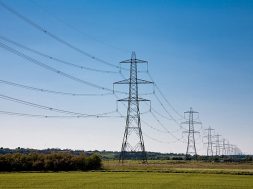
Açaí: A source of smoothies, and possibly renewable energy in Brazil – EQ Mag Pro
The state of Pará leads the world in the production and export of the fruit pulp, more than 1 million tonnes in a typical year.
The one-year, BRL 500,000 study will analyze the technical and logistical requirements of using the seed of the fruit on an industrial scale, in addition to looking at the social and environmental benefits.
The initiative is part of Hydro’s technical and scientific cooperation agreement with UFPA and can contribute to the sustainable development of industry in Pará.
In the production of açaí pulp, the stone is typically discarded. If the research results are positive, this will be the first application of turning this waste into a resource on an industrial scale.
People in Pará in Brazil gather açaí berries.
“In all, 11 researchers will be directly involved in this study and there will also be an analysis to understand the challenges of the supply chain and the seasonality of the product,” says Sergio Ferreira, executive manager of Renewable Energy Projects in Hydro’s Bauxite & Alumina business in Brazil.
“It is work in symbiosis between the açaí industry and the aluminium industry, with the possibility of using the residue from the production of fruit pulp to meet the demand for renewable energy sources in our refinery. The feasibility of this study, if proven, provides an important solution for the disposal of açaí residue, but it also generates other benefits such as the potential for reducing emissions in the operation and a positive impact on the development of the territory where Hydro operates.”
Adds Prof. Manoel Nogueira, Full Professor at UFPA-FEM: “The açaí seed is 90% of the mass of the açaí fruit. This means that in 2019, 1 million tonnes of seeds were discarded, which could equal the generation of 160 MW of electricity continuously during a year. This residue can be converted into a renewable biofuel with added value and capable of promoting a new economic activity: the production of bio-electricity.”
Climate strategy projects in Brazil
- Innovation and technology development are key enablers of CO2-free processes, and our ambitions for the future are to reduce our own emissions by 10% by 2025 and 30% by 2030.
- Hydro is adjusting Alunorte’s energy matrix, replacing heavy fuel oil with natural gas at the alumina refinery.
- Alunorte will also modernize an electric boiler in the first quarter of 2022, reducing CO2 emissions. Two other boilers will also undergo improvements to be finished in 2023.
- Hydro’s bauxite mine in Paragominas will study using floating solar panels a water reservoir there. In addition to generating solar power, the project could reduce water loss due to evaporation.
















